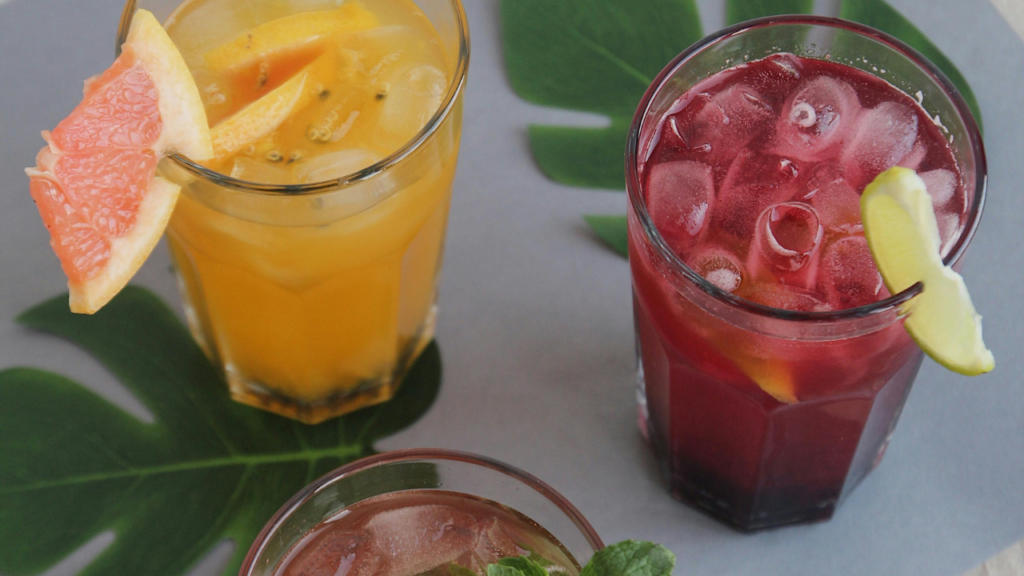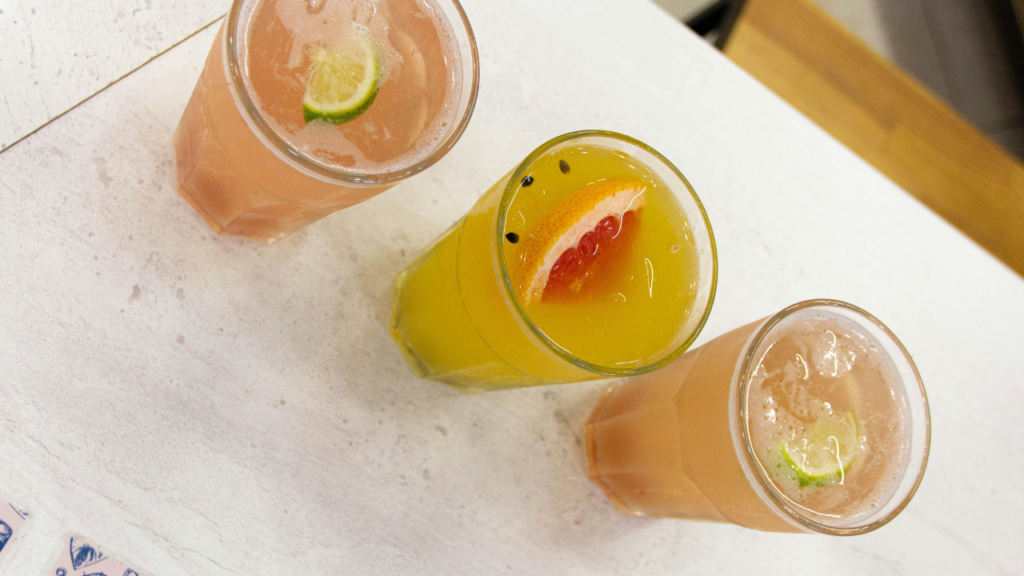In the picturesque landscapes of New England, from the rocky shores of Maine to the rolling hills of the Berkshires, a rich tradition of regional drinks has long been a part of the local culture. However, for those in recovery or choosing an alcohol-free lifestyle, partaking in these beloved beverages may seem off-limits. This guide aims to change that perception by introducing delicious, non-alcoholic versions of classic New England drinks.
The Importance of Alcohol-Free Alternatives
For individuals in recovery or those who choose not to drink, having appealing non-alcoholic options is crucial. These alternatives allow everyone to participate in social gatherings, celebrate special occasions, and enjoy the flavors of traditional drinks without compromising their sobriety or health choices.
Mocktails and other non-alcoholic beverages provide a sense of inclusion and normalcy, especially in situations where alcohol is present. They offer a way to enjoy the ritual and social aspects of drinking without the risks associated with alcohol consumption.
Classic New England Drinks, Reimagined
Let’s explore how to recreate some of New England’s favorite drinks without the alcohol, maintaining their distinctive flavors and regional charm.
The Cape Codder Cooler
Originally made with vodka and cranberry juice, this Cape Cod classic gets a non-alcoholic makeover:
- 4 oz cranberry juice
- 2 oz soda water
- 1 oz fresh lime juice
- Ice
- Lime wedge for garnish
Mix the cranberry juice, soda water, and lime juice in a tall glass filled with ice. Stir gently and garnish with a lime wedge. The tartness of the cranberry combined with the fizz of soda water creates a refreshing and satisfying drink.

The Boston Cooler Breeze
Despite its name, this drink originated in Detroit but has become a beloved refresher in Boston:
- 4 oz ginger ale
- 2 scoops vanilla ice cream
- 1/4 tsp vanilla extract
- Whipped cream (optional)
- Cherry for garnish
Blend the ginger ale, vanilla ice cream, and vanilla extract until smooth. Pour into a tall glass and top with whipped cream and a cherry if desired. This creamy, fizzy treat captures the essence of a classic float without any alcohol.
The Maine Blueberry Mojito Mocktail
A non-alcoholic spin on the mojito, featuring Maine’s famous blueberries:
- 1/4 cup fresh blueberries
- 6-8 fresh mint leaves
- 1 oz simple syrup
- 2 oz fresh lime juice
- 4 oz soda water
- Ice
- Additional blueberries and mint for garnish
Muddle the blueberries, mint leaves, and simple syrup in a glass. Add lime juice and ice, then top with soda water. Stir gently and garnish with extra blueberries and a sprig of mint. This refreshing drink captures the essence of a Maine summer.
Presentation Tips
To elevate these non-alcoholic drinks and make them feel special:
- Use high-quality, clear glassware to showcase the colors of the drinks.
- Invest in cocktail tools like shakers and muddlers for authentic preparation.
- Create decorative ice cubes by freezing edible flowers or fruit in water.
- Use fresh herbs, fruit slices, or even edible flowers as eye-catching garnishes.
- Serve with eco-friendly paper straws in fun colors or patterns.
Health Benefits of Non-Alcoholic Alternatives
Choosing these alcohol-free versions offers several health advantages:
- Hydration: Without alcohol’s diuretic effects, these drinks help maintain proper hydration.
- Nutrient boost: Many ingredients, like cranberries and blueberries, are rich in antioxidants and vitamins.
- Calorie control: Non-alcoholic options often have fewer calories than their alcoholic counterparts.
- Better sleep: Enjoying these drinks won’t interfere with your sleep patterns like alcohol can.
- Mental clarity: You’ll fully enjoy your experiences without the cognitive impairment alcohol causes.
Supporting Sobriety in Social Settings
Having delicious non-alcoholic options can be a crucial support for individuals maintaining their sobriety, especially in social situations where alcohol is present. These drinks provide:
- A sense of participation: Holding a mocktail can help individuals feel included in social rituals.
- Craving management: Satisfying flavor profiles can help address the desire for a drink.
- Confidence boost: Having a go-to non-alcoholic order can reduce anxiety in social settings.
- Trigger avoidance: Familiar tastes without alcohol can help retrain the brain’s associations.
At Swift River, we recognize the importance of developing healthy alternatives to alcohol as an integral part of the recovery process. Learning to enjoy these non-alcoholic versions of classic drinks can be a valuable tool in building a fulfilling, sober lifestyle.
Whether you’re in recovery, supporting a loved one, or simply exploring alcohol-free options, these New England-inspired mocktails offer a delicious way to enjoy regional flavors responsibly. Remember, a fulfilling life in recovery is about finding new ways to enjoy experiences, create memories, and connect with others – all of which can be done without alcohol.
If you or a loved one is struggling with alcohol addiction, Swift River is here to help. Our comprehensive treatment programs are designed to support you on your journey to recovery. Call us at 413-570-9698 to learn more about our services and take the first step towards a healthier, alcohol-free life.












